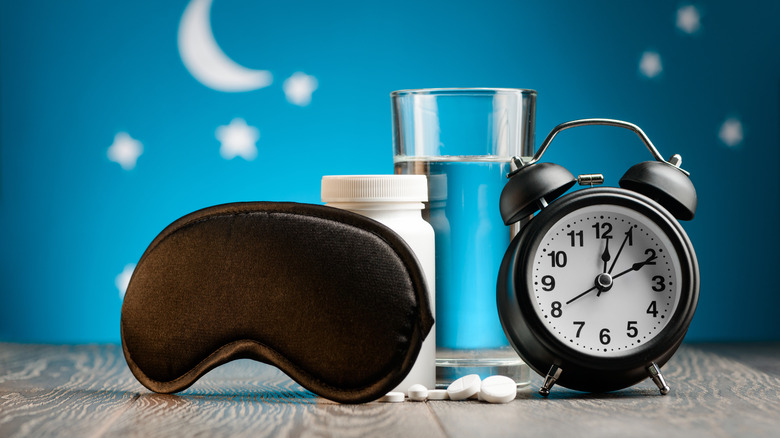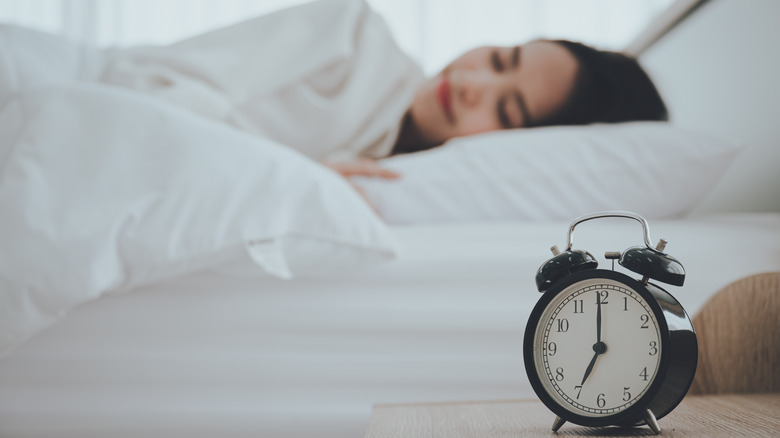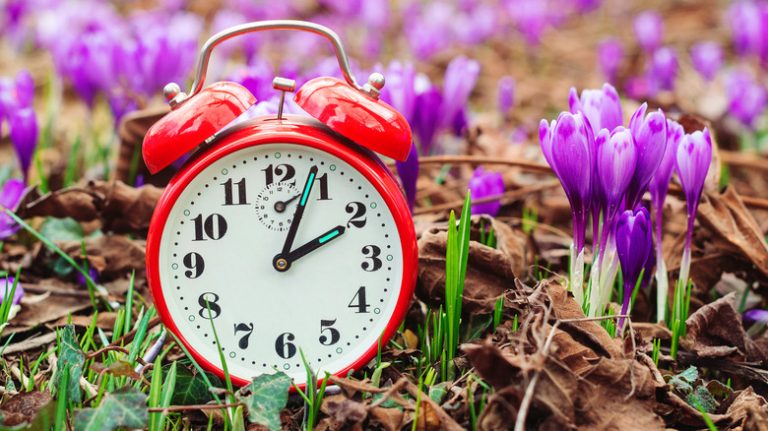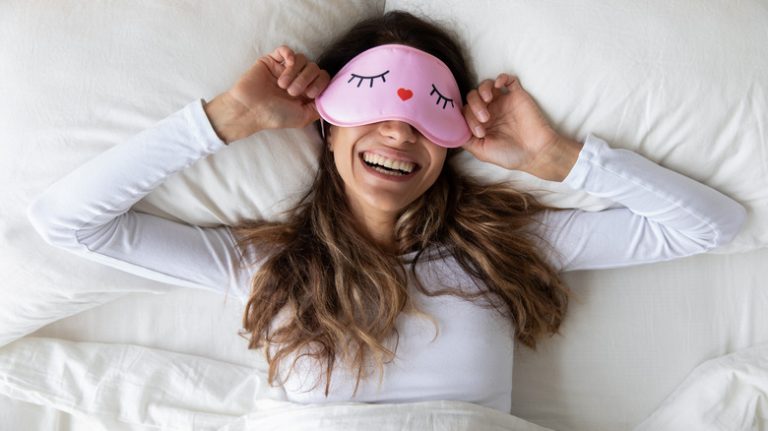If you have trouble falling asleep at night, someone may have recommended you try taking melatonin. But, like any supplement, it comes with concerns about safety. For example, is it addictive? And how much is safe to take at a time?
Melatonin is a hormone that your body naturally produces and releases from the pineal gland, according to Healthline. Production ramps up when it grows dark at night, and brings on the sleepy feeling that makes you ready for bed. When the sun rises and light hits your eyes, melatonin production is suppressed for the day.
Some people have difficulty falling asleep due to a disruption in their regular sleep patterns, however. This could be due to factors like travel and jet lag, working a shift that doesn’t allow a full night’s sleep, insomnia, or sleep phase disorders (via Medicine Net). For these people, a melatonin supplement might be a good thing to try.
Melatonin is not addictive, but it can have some side effects

Melatonin is not considered addicting in the sense that it doesn’t cause withdrawal symptoms when it is stopped. People also can’t build up a tolerance to its use over time (via Healthline). But experts still warn against its long-term use as it simply has not been studied enough.
There are also some people who shouldn’t take melatonin or should use caution when using it, according to WebMD. Taking too much has been known to cause bad dreams and a groggy feeling the next day. It has also been reported to inhibit the effectiveness of some blood pressure medications and may interfere with the effectiveness of birth control pills. People with seizure disorders may be more prone to having them while taking melatonin, so they should speak with their doctor before trying it.
Some other side effects that have been reported include headache, dizziness, nausea, and drowsiness, according to Mayo Clinic. Less commonly, people experience short-term depression, anxiety, tremors, cramps, irritability, disorientation, and low blood pressure. Start with the lowest dosage possible, usually one milligram, and see if that works before increasing.
While melatonin is relatively safe, with any ongoing sleep disturbance it’s important to get to the root of the problem. So, if you find yourself reaching for melatonin consistently, speak with your doctor to rule out underlying causes.
Find the right dose of melatonin

If you’re having trouble sleeping, you might think that the highest dose of melatonin will help you get to sleep faster. According to Healthline, too much melatonin can disrupt your sleep cycle. It’s best to find the right dose that’s effective without causing side effects. Cleveland Clinic suggests starting with 1 milligram of melatonin to see how quickly you fall asleep. If that’s not enough, gradually increase your dose by 1 mg each week. Be careful that you’re not doing things before bedtime to disrupt melatonin’s effectiveness. Scrolling through your phone or obsessing about your day can interfere with your body’s ability to turn down for the night.
It’s best to take melatonin when your body is relaxed and you’re ready for bed. Because melatonin takes about 20 to 40 minutes to work, you should take it about 30 minutes before bedtime. Taking melatonin too early in the day can make your insomnia worse (via Cleveland Clinic).
Older adults should take a lower dose of melatonin because it stays in their system longer and can cause next-day drowsiness, according to the National Center for Complementary and Integrative Health. A 2001 study in the Journal of Clinical Endocrinology & Metabolism studied people over 50 with age-related insomnia. Although melatonin doses as high as 3 mg helped people sleep, this dose also caused a drop in core body temperature. The study found that the higher dose wasn’t any more effective than dosages of .1 or .3 mg.



